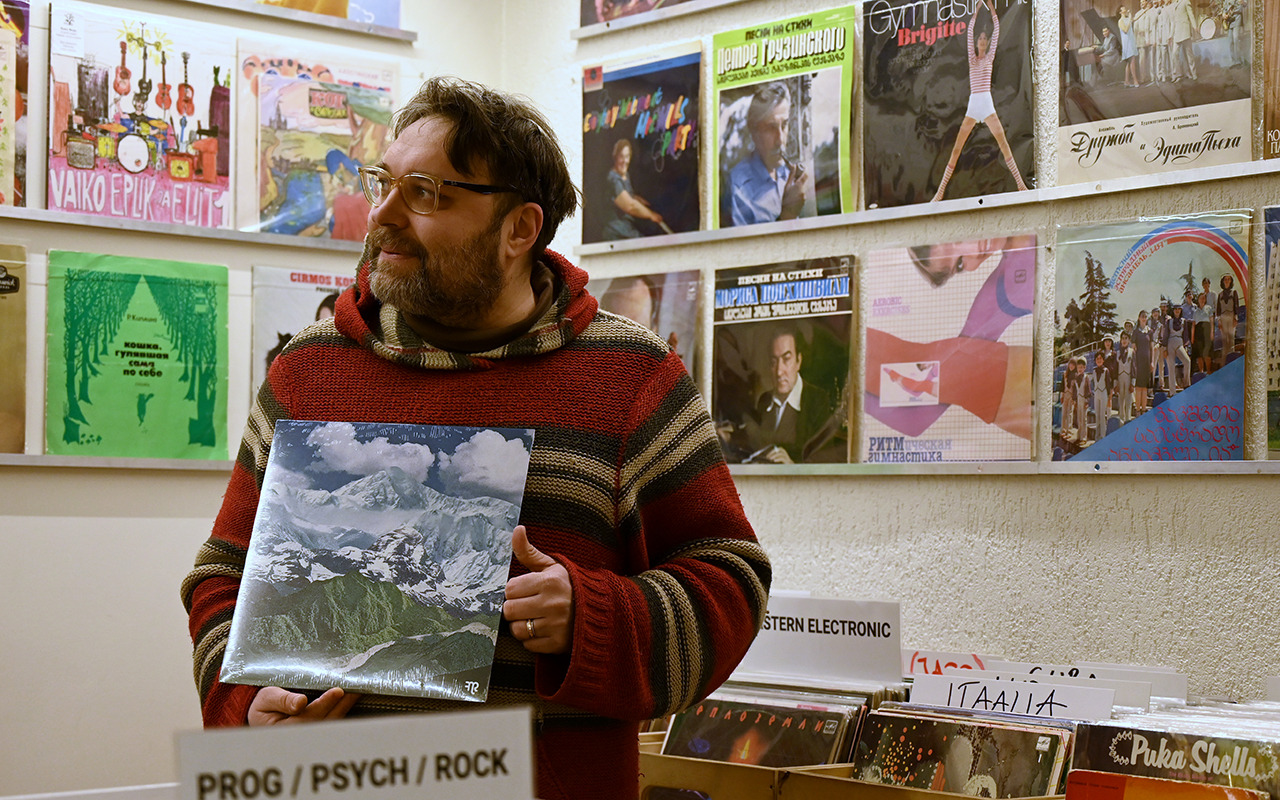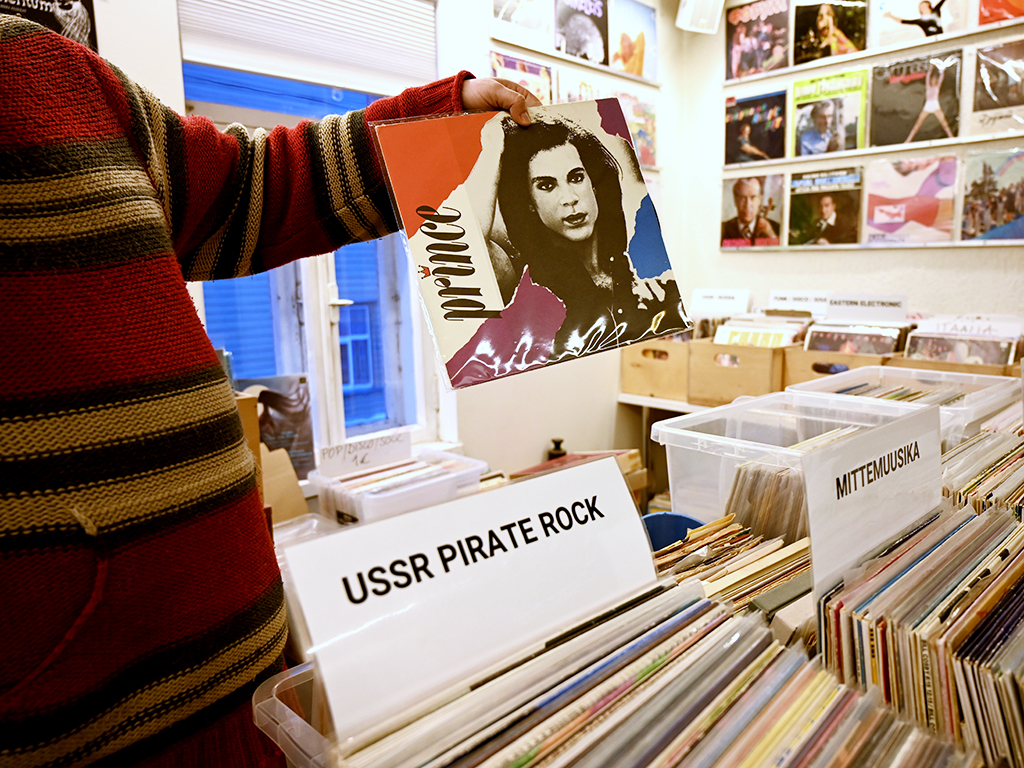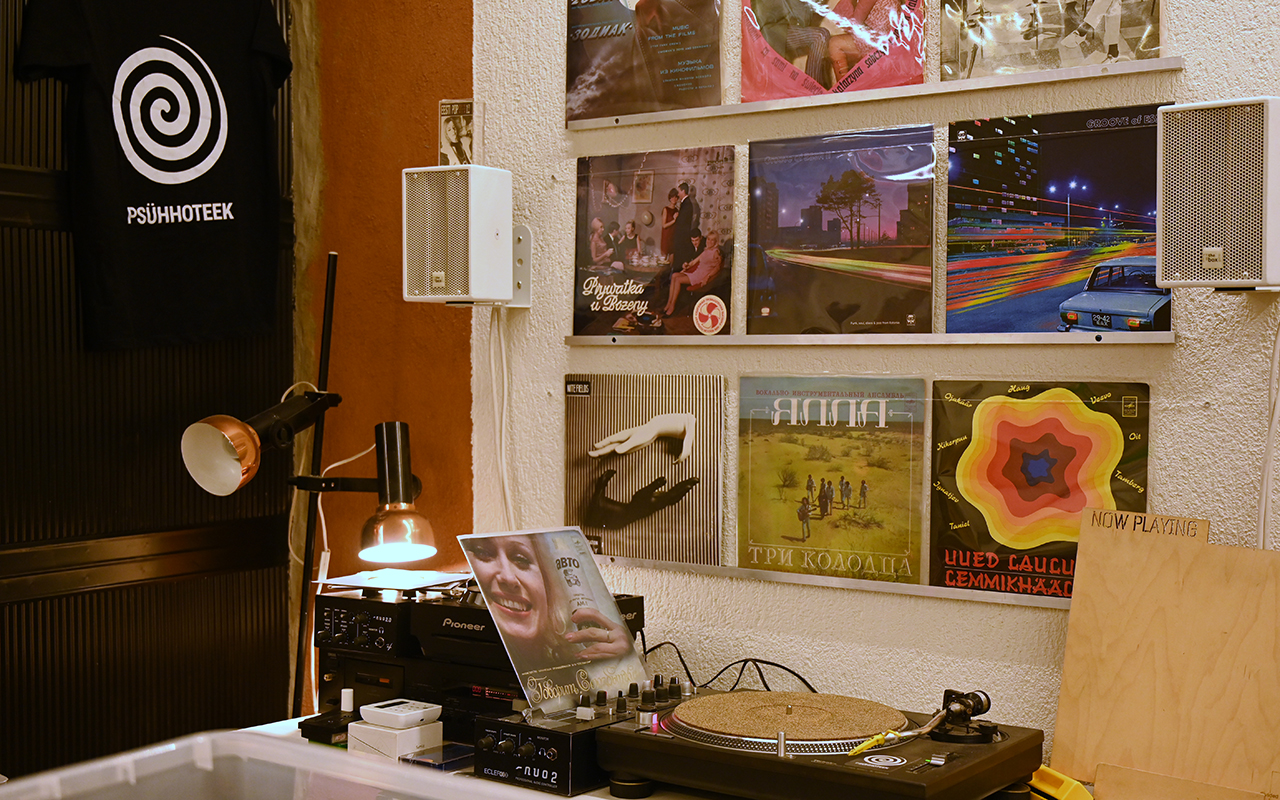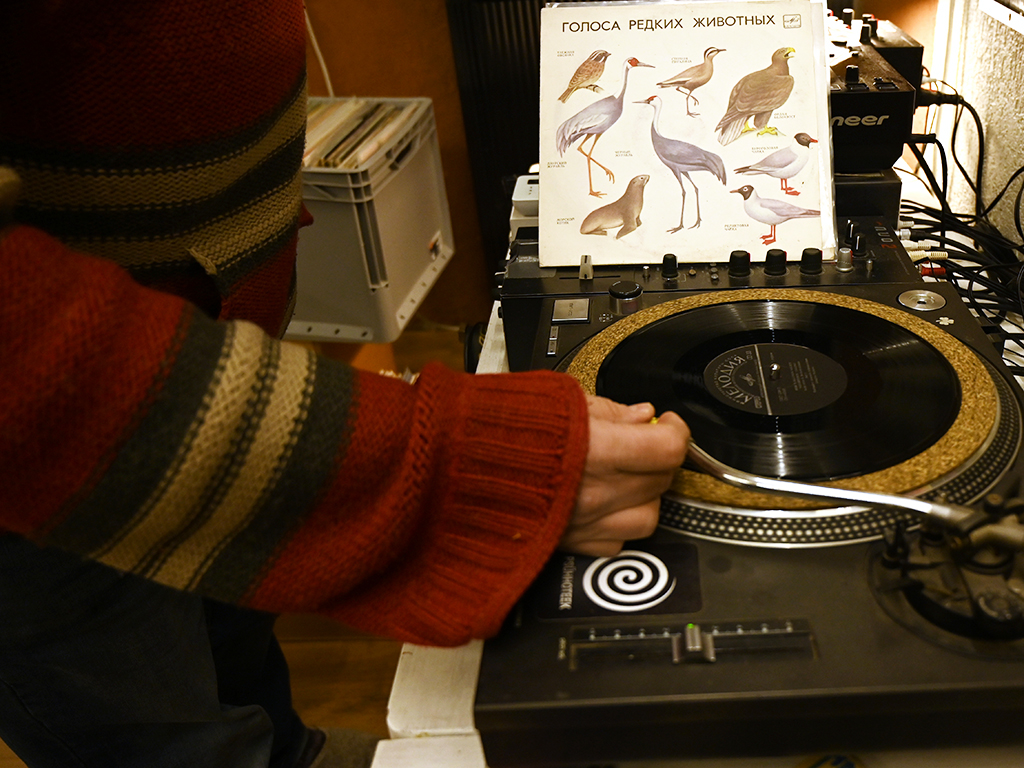A Matter of Record
By Mackenzie Daly
I wasn’t quite sure what awaited me at the top as I climbed the creaky wooden steps of a small house on Tähe street in Karlova, a neighborhood in Tartu. A tall, bearded man opened the door and politely asked us to take off our shoes and put on slippers.
Lo and behold! A record shop full of unfamiliar albums.
The proprietor, Ahto Külvet, is the owner of Psühhoteek. In addition to running the record shop, he also records radio shows and is a DJ.
“I preach Tartu being the vinyl capital of Estonia,” he said. “There’s no doubt to this.”

The small space was filled with bins, each labelled according to music genre. But the most interesting were the pirated records. In the Soviet Union of the 1940s through 1960s, strict censorship laws punished anyone caught with music from the United States. Possession of American albums was grounds for jail time.
Thus, Russian bootleggers.
Album covers were changed, and sometimes everything was written in Russian. Some were even printed on old x-ray films that bootleggers found in hospital waste bins. Külvet calls these “Soviet times hidden gems.”
“This one is cool, I like it. It’s a Prince album that’s actually a double album. It’s a soundtrack, but then the Russian bootleggers took out Prince,” Külvet said. “With some of this pirate practice you never know what you get, sometimes a couple songs less or the order is different.”

Külvet’s collection includes pirated records of popular artists such as the Beatles, the Rolling Stones, Elvis Presley, Stevie Wonder and Iggy Pop.
Külvet also pointed out a bin marked as Ukrainian music.
“I also support strongly Ukraine,” he said. “If you buy something from here it goes 100% to Ukraine.”

A few minutes later he grabbed a record off the shelf and placed it on the player. It was one of the more unusual things I have heard in my life… a record of fish sounds, that sounded suspiciously like fart noises. These recordings are expensive and rare, originally from a 1980s Soviet high school biology course, he said.
Most of his merchandise appeals to niche buyers.
“It’s a shop for you to find music that you didn’t know you liked,” Külvet said.
